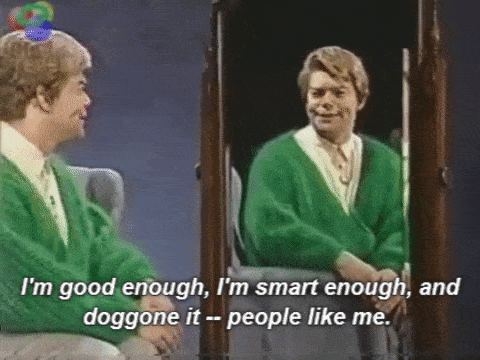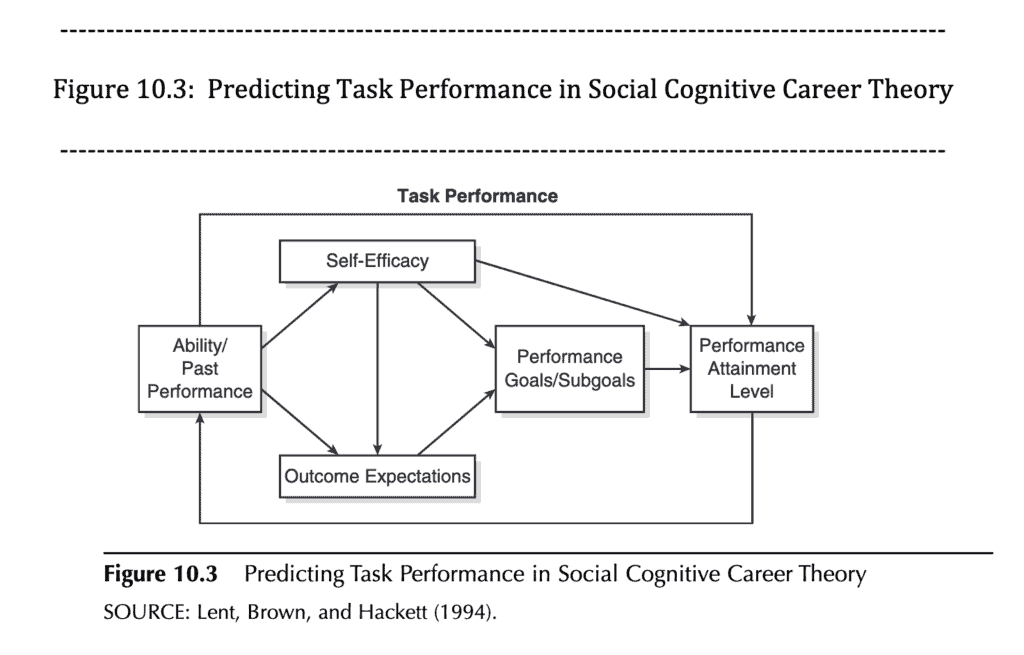What is Social Cognitive Career Theory?
How do we succeed in our careers? We believe that we can, due to external influences and past accomplishments

It's a mouthful, isn't it? "Social Cognitive Career Theory." Is it something we need?
To understand what it is, let's take some rats. Or actually, let's take research psychologist Bob Rosenthal's rats, which are ordinary, nothing-special lab rats, apart from the fact that some have been labeled as "smart" rats, and others have been labeled, somewhat unfairly, as "dumb" rats.
Late one night [Bob Rosenthal] crept into his research lab and hung signs on all the rat cages. Some signs said that the rat inside the cage was incredibly smart, while others said that the rat inside was incredibly dumb (even though neither of these things was true). "They were very average rats that you would buy from a research institute that sells rats for a living," says Rosenthal.
Liana Simstrom, NPR
When researchers ran maze tests on the rats, having been told that some rats were dumb and some rats were smart (even though they were pretty much all the same), a very surprising result happened:
The rats that were labeled as "smart" outperformed the "dumb" rats. Not merely outperformed — they did nearly twice as well.
The allegedly smart rats did almost twice as well as the "dumb" rats, even though they were all the same kind of albino lab rat.
Liana Simstrom, NPR
What could possibly account for such a big divergence in performance? Well, once the researchers were told that some of the rats were "smarter" than the others, they were gentler with them and treated them more nicely than the "dumb" ones. As a result, the "smart" rats did better in the tests ... because they, er, believed in themselves.

Here's the thing: it works for humans, too. In other words, if humans receive encouragement for a skill or task, they are more likely to have confidence in their ability to perform it. It is called self-efficacy.
Other people's opinions are not the only factor when it comes to self-efficacy, however. As vocational psychologist Nadya A Fouad writes, socio-environmental factors, exposure, encouragement, and most importantly, previous personal accomplishments factor into self-efficacy as well:
In other words, past performance influences self‐efficacy beliefs along with the expectations individuals have about the outcomes of their future behavior. These expectations affect the goals that people set for themselves. These goals then affect the level of performance they may attain.
Nadya A Fouad, Social Cognitive Career Theory Introductory Review
Do you have problems wrapping your head around things that you want to accomplish? Does it all seem like a very big and monumental task — something that seems impossible for little old you to even start on? Perhaps a deeper understanding of social cognitive career theory can help you.

How can you make this work for you?
- You need to take a hard look at the environment you're currently in. Many people are actually surrounded by others who are not supportive. If you're not sure, this article from Bustle might help you identify them. It can be tough, because often these people are deeply entrenched in our lives. If you can't distance yourself from them, it might help to lower your reliance on them and limit how much you share your dreams and goals with them.
- Acknowledge the accomplishments that you have already completed. You can do this by making a list of your previous accomplishments, and checking them off. Alternately, you could spend some time viewing trophies or awards that you've obtained, and thinking about the work that you did to get there. This might sound self-aggrandizing or self-indulgent, but it's a really important step in understanding your own power to set and accomplish goals. By understanding that you have already attained previous goals, you gain confidence in your ability to achieve new goals in the future.
- Write down your next goals and resolve to attain them. When you set your own goals, you're able to create something of a road map for yourself. And in doing so, you'll be better able to guide your own behavior and hold yourself to these goals by being able to refer back to the list — even if there's a lack of external support.
Can you identify a time in your life when you felt discouraged from achieving a goal or learning a new skill because you felt other people didn't believe in you? Is there a current wish or goal in your mind that you would like to do, but you're afraid you'll fail at it? What are the first steps you can take towards achieving that goal? Let me know!

Hi! I'm Piya. I'm a freelance creative starting a new career, and I want to help you start yours, too.